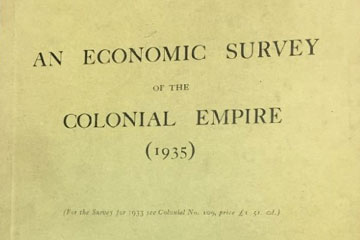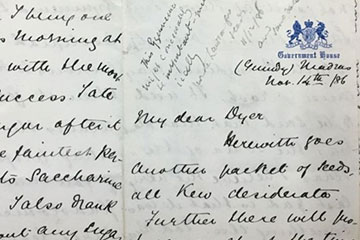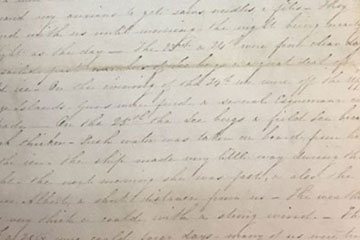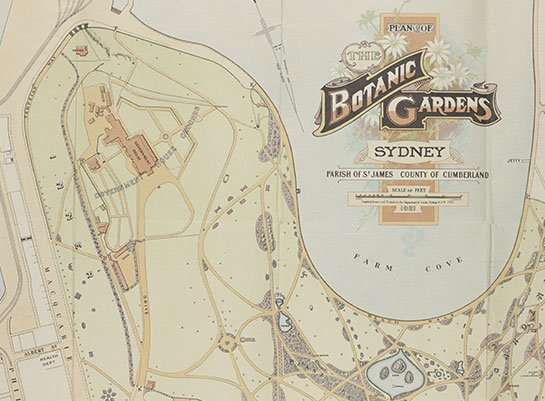About the Royal Botanic Gardens Archive
The archive is a primary source digital collection with global coverage allowing for comparative analyses of different regions with primarily English-language content. This is due to the Royal Botanic Gardens’ role as the hub of a global network of institutions and knowledge transfer throughout the timeframe of the collection.
The archive is a relevant resource to teaching and research in several disciplines. Environmental humanities is a growing and multi-disciplinary field in higher education, and this archive enables researchers and students to access a wealth of documents covering environmental, economic, and imperial histories. The Miscellaneous Reports is comprised of unique or rare material organized by country or region in bound ‘scrapbooks’, including reports and related correspondence covering a broad range of topics in environmental humanities.

From the Collection

A British Empire-wide economic survey commissioned by the UK government in 1935. 
A letter to William Thiselton-Dyer, one of the directors of Kew, discussing the sending of seeds back to Kew and sugar production in India, forming part of a larger file on ‘cultural and economic products’ in that country in the latter 19th century. 
One of a series of letters to the Director of Kew, relating in great detail an exploratory journey to ‘British North America’ (i.e. Canada) in the 1840s.
